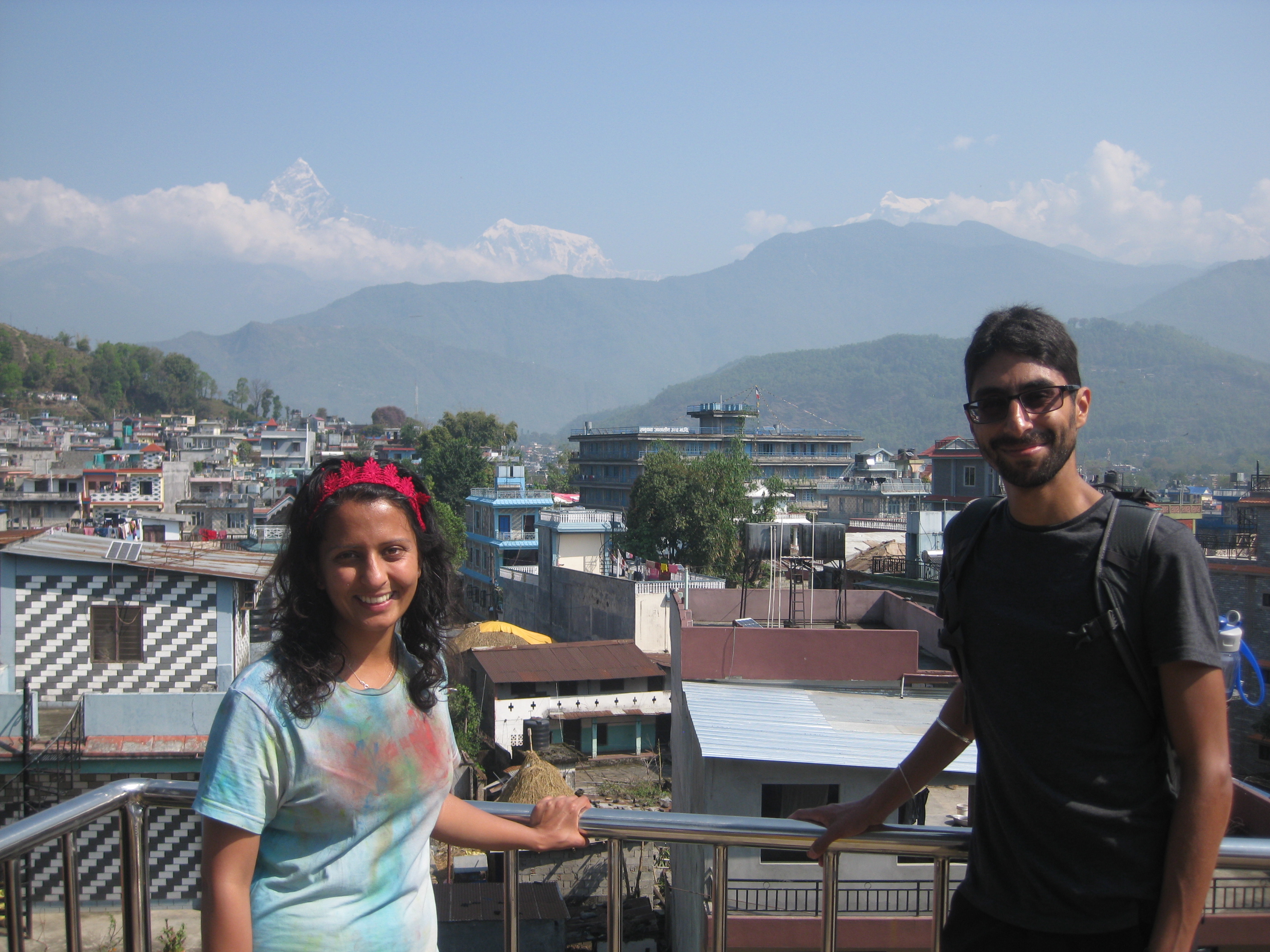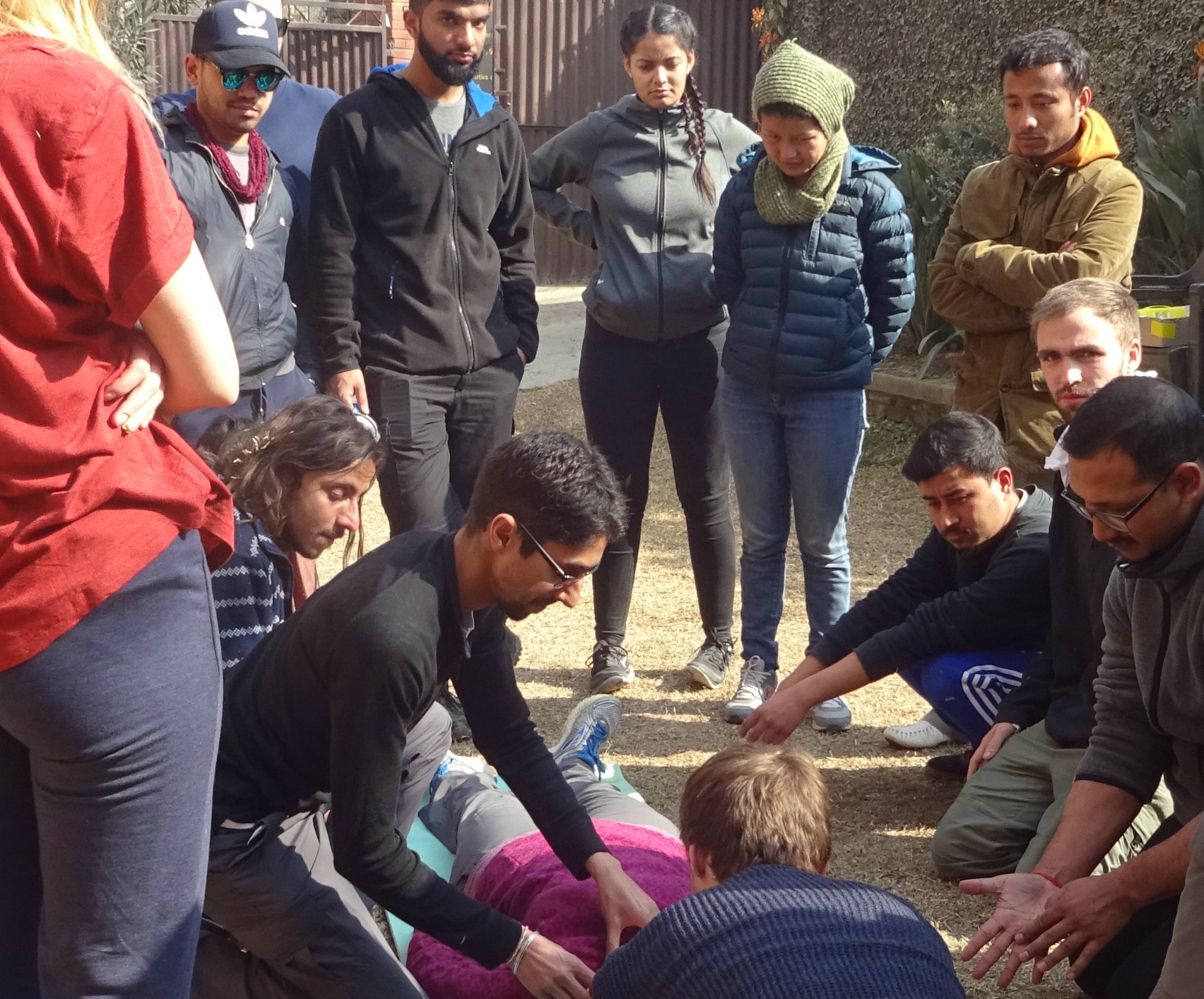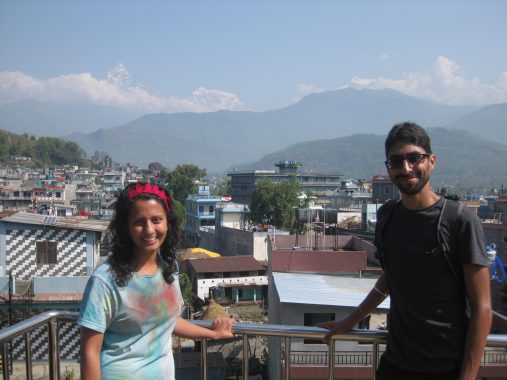Profile: Dr Karan Ghatora and Dr Rachna Patel

Dr Rachna Patel (left) and Dr Karan Ghatora on arrival at their Raleigh International base in Kathmandu
Roles: Locum GPs in London and Reading, UK; Raleigh International medics (field base)
Hours worked: On-call 24 hours a day, seven days a week over three month trip; large majority of calls during morning 9-12 am sessions
Pay: No salary, but subsistence costs covered
Days 1–4
On arrival at our base in Kathmandu, we meet the team and are assigned our desks, laptop and phone. The next day we deliver an impromptu presentation to volunteers, using Raleigh’s resources as well as our own. We are introduced to the cooking rota (we will make dinner for anywhere from five to 15 people at base) and other duties on site, including ‘communication’s officer’. This a role we share at base, calling each team out in the field morning and evening, to record their activities and report back to office meetings. This is much like a medical handover, where we list each team’s status, current activities and any problems, and discuss as a team the appropriate action needed.
Having recently completed our GP training, we both wanted to do something different and challenging whilst helping a worthwhile cause and, after a chance meeting with a Raleigh International medic, applied to work on their International Citizens programme.
Raleigh specialise in giving young volunteers a unique experience living in a local village and helping with sustainable development, for example providing or improving water sanitation, and encouraging new enterprises and local support groups, such as women’s rights. Volunteers are supported by UK trained medical doctors who look after them and provide them with basic medical and first aid training. Being locums, we were easily able to organise three months off to take up places on the Nepal project.
Days 5–10
We prepare the formal training programme and put together presentations. Sourcing and preparing medication and medical equipment is next; we have to provide a mini medical kit for each volunteer, consisting of basic analgesia, strepsils, plasters and so on, and one large kit for each team with a more extensive supply of painkillers, antibiotics, emergency airway equipment and some intra-venous equipment. Stock checking vast quantities of medicines, ensuring everything is in date and sourcing new products, while working within a budget with the finance team, presents a new challenge for us.

Dr Karan Ghatora demonstrates first aid to volunteers
Days 10–20
We start the formal training of team leaders and volunteers, all of whom undergo a rigorous two-week training programme before being deployed. We provide the medical part, covering common medical conditions and their treatment (right up our street), first aid/basic life support, and emergency evacuations. It’s an enjoyable time – we get to know all the volunteers through the training sessions and activities, and conducting individual consultations prior to their deployment. We feel ‘back to being GPs’, although the emergency evacuation procedures require a quick refresher crash course. We have to make sure all volunteers feel competent both themselves and as a team in delivering medical aid, and that language barriers do not hinder their training and working as a team.
Day 25
A phone call comes in about an incident – some volunteers may have been exposed to rabies, something we have never dealt with before. We discuss the plan of action, then source a rabies booster and urgent delivery to the village. It also requires us to help with the non-medical logistics, planning transport and accommodation.
Day 35-36
Phase review time. After a period of deployment to a village, teams come back together for two days to discuss their progress. We opt to take on several roles during these days – we run designated drop-in medical clinics, but also take part in the fundraising sales team selling Raleigh International merchandise for part of the day and even judge the dance-off competition at the evening social.
We also restock teams with medicines from reliable sources – often the issue is not obtaining medication, but more obtaining reliable and in-date medication. This involves locating a suitable pharmacy, often governmental.
Day 37
Volunteers return to their villages and we remain at base to man the on-call phone, discussing and advising on any medical problems. The majority of these centre around gastroenteritis, skin complaints and mental health. This tests and develops our telephone triage and distance treating skills. One volunteer needs a specialist ENT review due to a persistent ear problem; one of us escorts them to the local hospital in Kathmandu, while the other starts a week-long visit to each of the locations to provide onsite support alongside one of the project managers. We rotate as the base doctor/visiting support doctor roughly every week while volunteers are on active deployment.
Day 42
We received a call that a villager has died by suicide, a terrible situation for both the community and volunteers. One of us is deployed with the Operations Manager and Deputy Operations manager to support the volunteers. As in this case, we find a lot of the medical management is more of mentoring and psychological support than treating acute conditions, and whereas we would normally have only 10 minutes in which to consult, the extra time allows us to develop these skills.
Pulse October survey
Take our July 2025 survey to potentially win £1.000 worth of tokens













